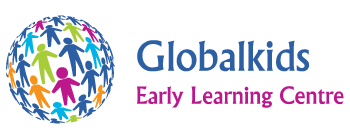Social Competence 2017
Policy Category: Curriculum
Position Statement
We will use positive guidance techniques to shape and nurture children. These include maintaining loving, warm relationships, setting clear and consistent expectations and boundaries for behaviour and ensuring there is consistency in consequences. These principles enable children to feel secure, protected and happy in their environment.
Issue Outline
Shaping a child’s behaviour is an essential part of the role of the centre. Our policy will ensure that inappropriate behaviour is eliminated or reoccurrence is reduced. Appropriate behaviour is acknowledged and recognised. Positive guidance will prevent physical or emotional harm to the child.
Detail
- All staff receive training in positive Social Competence techniques.
- Parents are informed of the centre’s policies on Social Competence during the enrolment process. They are given information on positive Social Competence techniques and are asked to adhere to these while at the centre.
- When there is an incident around Social Competence, it is used as an opportunity for learning at staff meetings.
- We aim to encourage children to engage fully in activities in a constructive and appropriate manner to avoid frustration and other similar emotions. We will teach children calming techniques to support them before they get frustrated e.g. Rocket Breaths or counting.
- Staff and parents are expected to model positive behaviours to children and to other adults in the centre.
- Teachers use incidents to educate children in resolving differences and frustrations constructively.
- Unacceptable behaviour includes hurting another person, yelling, spitting, or damaging the
equipment. Staff stop the behaviour and first attend to anyone who is hurt. - Planned ignoring will first be used if the behaviour is undesirable and is not harming others, themselves, the property or environment. If behaviours continue or the behaviour is hurting or destructive then the technique of sit and watch to calm down will be implemented. During this time the child will be encourage to calm down using the techniques we have taught them. Planned ignoring will be used alongside planned attention. Once the child is engaged in appropriate play behaviours it will be noticed and attention given.
- Where problematic behaviours are persistent, we seek specialist support where necessary and discuss ways of addressing it with the child’s family. A behaviour guidance plan is developed where appropriate.
- Teachers are expected to calmly focus on the behaviour, not the child.
- We are a ‘NO hitting Zone’. This applies to children, teachers, parents and visitors to the centre
- Parents and teachers are encouraged to keep rules and limits to a minimum.
Alignment with Other Policies
- Child Protection policy
- Enrolment procedures
- Parental Involvement, information and communication policy.
Relevant Background
Licensing Criteria 2008, Curriculum, Children as Learners documentation required: C10: a process for providing positive guidance to encourage social competence in children.
Impacts of Policy on Staff, Parents and Children
Failure to implement this policy can lead to:
- Negative, harmful and destructive interactions
Poor modelling of behaviour
Development of severe behaviour problems
Criminal charges on staff
Upset parents/complaints/child withdrawal.
Alignment with the Philosophy of Globalkids
This policy is aligned with our centre’s philosophy.
Implications and/or Risks for Globalkids
Risk of loss of centre licence.
Implementation
All staff are responsible for enacting this policy. The Manager will ensure staff are adequately trained, monitor staff and take action where inappropriate discipline is used.
Review
Review annually or when there is a significant change in the area of the policy topic.
Guideline for parents and staff
These are the techniques and approaches we use to guide children’s behaviour:
- Promote peaceful problem solving strategies which empower children.
- Re-direct behaviour, i.e., guide child towards more appropriate activity.
- Planned ignoring is used for undesirable behaviours that are not harming themselves, others, property or equipment
- Offer explanations of why certain behaviours are unacceptable and inform children of acceptable behaviours.
- Give the child time to correct her or his behaviour. Depending on child’s stage of
development, offer choices to the child on how to try things differently. Give time to acknowledge emotions. - If unacceptable behaviour continues after a warning, remove the toy, activity or object that is central to the inappropriate behaviour.
- If a child is using hurting or destructive behaviour they will be asked to sit and watch to calm down with the techniques they have been taught e.g. rocket breaths or counting.
- Use a calm and peaceful manner to maintain a child’s dignity.
Quality early child care education, preschool, daycare, St. Martins & Sydenham area Christchurch.
